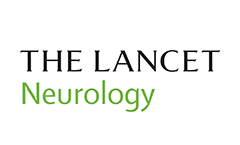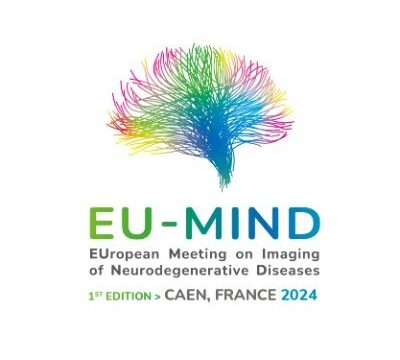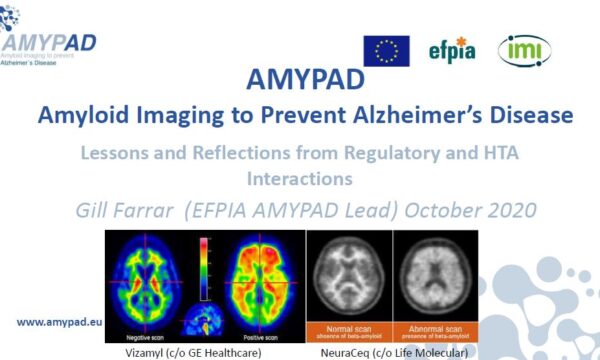On 11 May, the members of the Amyloid Imaging to Prevent Alzheimer’s Disease (AMYPAD) project announced the completion of the enrolment of research participants in its Prognostic and Natural History Study (PNHS).
The PNHS study is an open-label, prospective and multi-centre cohort study aiming to understand the role of amyloid PET imaging in the earliest stages of Alzheimer’s disease (AD). The first participant was recruited in Amsterdam, The Netherlands, in October 2018.
The study has been established to collect amyloid PET scans in a large-scale population in the early stages of AD. The study recruited participants from various European parent cohorts of similar characteristics. The main and original parent cohort was the European Prevention of Alzheimer’s Dementia (EPAD) due to the inherent collaborative framework between the two projects. In addition to EPAD, there were 9 other Parent Cohorts actively recruiting into AMYPAD. These are: EMIF-AD (60++ and 90+), ALFA+, FACEHBI, FPACK, UCL 2010-412, Microbiota, AMYPAD DPMS (VUMC) and H70.
On 30 April the recruitment formally ended and the study succeeded in recruiting 1321 participants. As of 11 May 2022, the number of prospective scans collected within AMYPAD PNHS is 1361 (1144 baseline and 217 follow-up). The non EPAD Parent Cohorts also shared their historical data and therewith the total numbers of scans in AMYPAD PNHS is ~2600. Of course these are not the final numbers as sites are allowed to continue scanning (and collect additional data if applicable). In May and/or June sites will perform their final scans and the Last Patient Out date is the 30th of June 2022. At this moment, seven sites are finished with the scanning of participants (UEDIN, Tayside, CHUT, Nantes, Paris la Pitié, UZ Leuven and Fundació ACE) and the focus will be on the close out of the sites.
The non-EPAD parent cohorts have been able to share their historical data and with this abundance of data coming in, there has been considerable effort in integration and harmonization of, both imaging and non-imaging data. The first internal data-release of the AMYPAD PNHS study has been made in November 2021. Data from the multiple data sources have been integrated using the Aridhia Workspaces infrastructure, which has now been set-up within the Alzheimer’s Disease Data Initiative (ADDI). The first data, together with the metadata describing the dataset, are now accessible through the AD Workbench for all members of the AMYPAD consortium. Data access for researchers outside AMYPAD will be granted in the future through the AD Workbench FAIR metadata catalogue. If you are interested to know more about the hard work of the AMYPAD PNHS team to provide everyone access to the data, which will allow to better evaluate the value of quantitative PET amyloid imaging measurements for predicting Alzheimer’s progression, watch the interview below with David Vállez García.
The consortium would like to thank all study centers for their excellent support and hard work, as well as all research participants for their willingness to participate in the project. Special thanks go to Ilona Bader and Ifrah Iidow who have worked through multiple steps and challenges to drive this study to completion!
‘’AMYPAD has come so far since the start of the project and we would like to share this achievement with all the sites, staff and PIs who have worked so diligently over the last 5 years. It hasn’t always been easy – especially with a global pandemic mid-way through the recruitment phase but we are proud of the efforts put forth by everyone, so thank you!‘’, said Ilona and Ifrah.



